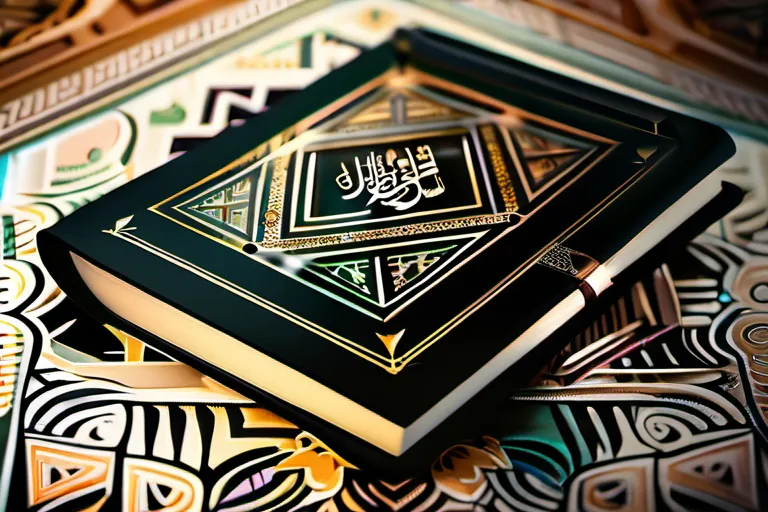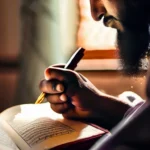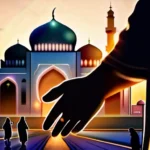Exploring the reasons behind Muslims following rules from a book written long ago: The Quran.
The Quran, considered by Muslims as the word of God, is central to their faith and way of life. This article delves into why Muslims follow rules from this ancient text and its significance in Islam.
The Role of the Quran in Islam
Imagine the Quran as a beacon, guiding ships through stormy seas; it’s the compass that directs Muslims toward the straight path. But how did this ancient text come to hold such profound importance in Islam? Why do millions turn to its words for direction and solace, even centuries after its revelation?
The Quran wasn’t just written by a man but is believed by Muslims to be the word of Allah, delivered through the angel Gabriel. This divine origin gives it an unshakable authenticity. It’s like receiving a map from the creator Himself—every direction matters.
How does one understand such a monumental text? Consider the Quran as a tree, with its roots deeply embedded in the history and culture of Arabia. Its trunk is strong and sturdy, branching out into myriad interpretations and applications across diverse communities. Each leaf carries wisdom, guidance, and assurance for those who seek it.
Some might wonder: How can a book from centuries past be relevant today? The answer lies in its timelessness. Just as the laws of nature remain constant, so too do the principles of the Quran. Whether it’s advice on family life, social justice, or personal conduct, its teachings provide a blueprint for living.
In essence, the Quran is not just a book; it’s a way of life. It offers a framework for every aspect of existence—morality, ethics, and even dietary laws. Just as a gardener carefully tends to each plant, Muslims strive to follow its guidance in their daily lives.
The Guidance Provided by the Quran
The Guidance Provided by the Quran: Delve into the guidance provided by the Quran on various aspects of life, including morality, ethics, and daily practices.
Imagine you’re walking through a dense forest, searching for a path that will lead you to safety and fulfillment. The Quran, much like a beacon, guides Muslims in their journey through life with clear instructions on how to navigate the complexities of morality and ethics.
- Morality: Think about the moral compass we all strive to carry within us. The Quran outlines fundamental principles that help Muslims discern right from wrong. It provides a framework for treating others with respect, honesty, and compassion—values that are not only universal but timeless.
- Ethics: Reflect on how our actions affect those around us. Ethical living isn’t just about following rules; it’s about fostering harmony within communities and ensuring that every interaction is rooted in kindness and justice. The Quran teaches that true ethical behavior comes from a heart filled with mercy and understanding.
- Daily Practices: Consider your daily routine, how you start each day, and the small decisions you make throughout it. These habits can significantly shape your character and spirituality. From prayers to fasting during Ramadan, these practices are not just rituals but reminders of deeper values that strengthen one’s spiritual bond with God.
The guidance in the Quran is like a map that points us towards the straight path, providing clarity and direction even when the world seems chaotic. It’s more than just religious doctrine; it’s a holistic approach to living a fulfilling life that benefits not only individuals but society as a whole.
The Historical Significance of the Quran
The Historical Significance of the Quran: Explore the historical significance of the Quran, its impact on the Arabian Peninsula and the world at large.
Imagine a world where a simple caravan journey could turn into a monumental mission—where a few verses whispered in a cave could change the course of history. This is exactly what happened with the revelation of the Quran. For Muslims, this sacred text is not just a book; it’s a historical landmark that transformed an entire civilization.
Consider the Arabian Peninsula around the 7th century CE. It was a region riddled with tribal conflicts and superstitions. Then, a voice echoed through the desert, urging people to seek guidance from the One True God. This voice was the Quran, revealed to Prophet Muhammad (peace be upon him) over a period of 23 years.
The impact of this revelation was profound and swift. The Quran brought about a new code of ethics, morals, and societal laws. It introduced a message of peace, equality, and justice that resonated with the hearts and minds of people across cultures and continents. How could such a message, born in a small desert community, have such far-reaching effects?
One can only marvel at the Quran’s ability to transcend time and space. Its wisdom has guided Muslims for centuries, shaping not just their personal lives but also their communities and interactions with others. It acts as a beacon of hope and a source of strength in times of adversity.
Moreover, the historical significance of the Quran extends beyond religious boundaries. Scholars from various backgrounds have studied it, analyzing its linguistic beauty, legal principles, and philosophical insights. This has led to a rich tapestry of interpretations and applications that continue to influence not only Muslims but also people around the world.
So, as we explore the historical significance of the Quran, let us remember that it is more than just a book—it is a testament to human resilience and the power of divine guidance. Its impact on the Arabian Peninsula and beyond continues to inspire generations, reminding us that true change begins with a single step towards the light of truth.
The Interpretation of the Quran
The interpretation of the Quran, known as Tafsir, is like navigating through a vast ocean of knowledge. How do we understand the wisdom within its verses? What methods do Muslims use to derive meaning from this ancient yet timeless text? One of the primary ways is through the lens of Hadith.
Imagine the Quran as a beacon in the night, guiding travelers on their journey. Hadith, which record the sayings and actions of the Prophet Muhammad (peace be upon him), serve as the stars that illuminate this path. Scholars meticulously compile these narratives to provide context for Quranic verses, ensuring that interpretations align with the teachings of the Prophet.
Another method is Ijma, or consensus among Islamic scholars. This collective wisdom acts like a compass, helping to navigate through complex issues where direct guidance from the Hadith might be lacking. It’s as if a group of seasoned sailors agree on their course, ensuring that all follow the same path.
Fatwa and Istifta, or legal opinions and seeking advice, are like the navigational tools in a sailor’s kit. They help practitioners find practical guidance for their daily lives, from religious obligations to moral decisions. These interpretations are continually refined as societal needs evolve, much like updating charts and maps.
The Quran’s enduring relevance is not just about literal interpretation; it’s about understanding its principles and applying them in a way that resonates with contemporary contexts. This dynamic interplay of tradition and modernity ensures that the wisdom contained within remains vibrant and applicable to every generation.
The Daily Life of Muslims and the Quran
Imagine every morning begins like a symphony, where each note represents a daily prayer. For Muslims, this ritual isn’t just a formality; it’s a profound connection to the Quran, the holy book that guides their lives. Just as a musician practices scales before performing, Muslims start their day with Salat, or prayers, to set the tone for what lies ahead. How can something from so long ago continue to shape our mornings? The Quran teaches us to begin each day by thanking Allah and seeking His guidance—each morning is a fresh slate, written anew in the lines of the Quran’s verses.
In addition to prayer, the Quran also dictates dietary laws that Muslims follow. These rules are not just about food; they’re about purity and respect. Have you ever wondered how something so specific could be included in a book meant for all time? The Quran’s guidelines on what to eat and what to avoid serve as a reminder of our responsibility towards both ourselves and others. Imagine walking into a grocery store, where every item is labeled with a Halal or Haram sticker—a literal representation of the Quran’s influence on our daily choices.
Dietary restrictions like abstaining from pork and alcohol are not just about avoiding certain foods; they’re part of a broader practice that aims to purify the body, mind, and soul. These rules encourage Muslims to make healthier decisions, promoting a holistic approach to well-being. How can such ancient guidelines remain so relevant in today’s world? The Quran offers a timeless perspective on health and ethics, making these practices not just cultural traditions but deeply personal commitments.
The Quran also plays a significant role in shaping the community life of Muslims. From Salat to charity (Zakat), every act is a form of worship and service to the community. It’s like building a house brick by brick, where each action contributes to a stronger foundation. How do these practices impact our relationships with others? They foster a sense of unity and responsibility, reminding us that we are part of something greater than ourselves.
Through its detailed instructions on daily life, the Quran acts as a compass for Muslims navigating the complexities of modern living. It’s like having a map that guides every step of your journey, ensuring you stay true to your path. Whether it’s the call to prayer echoing through neighborhoods or the choice of what to eat at meals, the Quran is woven into the fabric of daily existence.
So, as we go about our days, remember that each decision and action is influenced by this ancient yet ever-relevant book. The Quran, in its verses, offers a blueprint for living a fulfilling life—each line guiding us towards righteousness and peace. How can something so old still resonate with such clarity? It’s because the Quran transcends time, offering guidance that is both timeless and timely.
The daily life of Muslims is intertwined with the Quran, making it a living, breathing part of their existence.
The Future of the Quran in Islam
As we delve into the importance of the Quran in Islam, it’s fascinating to ponder how this ancient text continues to shape contemporary Islamic societies. Could the principles and teachings found within the Quran be as relevant today as they were centuries ago? The answer lies in understanding its timeless wisdom and adaptability.
The future of Islam may well depend on our ability to interpret the Quran for a modern world. How do we ensure that its messages resonate with people who live in a digital age, where information flows at lightning speed and global challenges are more complex than ever? The Quran itself provides us with tools to navigate these complexities—guiding us through ethical dilemmas, fostering social cohesion, and promoting justice.
Consider the role of the Quran in addressing contemporary issues such as environmental stewardship. The advice to preserve nature found throughout the text can serve as a blueprint for sustainable practices in our modern world. Could the verses urging Muslims to treat the earth with kindness and care inspire global action on climate change? Similarly, the emphasis on compassion and mercy could influence policies that protect human rights and promote equality.
The Quran also plays a crucial role in shaping interfaith dialogue and understanding. Its teachings on coexistence and respect for others can help Muslims engage with people of different faiths and cultures, fostering peace and cooperation. How might this text influence the future of religious harmony in diverse societies where pluralism is increasingly valued?
The ongoing relevance of the Quran lies not just in its preservation but in its evolution. As Islamic scholars continue to explore new interpretations and applications, we are witnessing a dynamic and living tradition that responds to the needs of an ever-changing world. How will future generations interpret the Quran to address challenges such as technological advancements, global conflicts, and socio-economic inequalities?
The future of Islam is intertwined with our understanding and application of the Quran. By embracing its timeless wisdom while adapting it to modern contexts, we can ensure that this sacred text remains a guiding light for Muslims around the globe. Will you be part of this journey, seeking to uncover new meanings and applications in the ever-evolving narrative of Islam?
In the end, the Quran is not just a book; it’s a living entity that has the power to shape our collective future. The choices we make today will determine how this ancient text continues to influence the lives of millions and the direction of Islamic societies in years to come.
Will you be ready to embrace its teachings, adapt them to modern times, and contribute to shaping a better future for all?
Conclusion
 By understanding the importance of the Quran in Islam, we gain a deeper appreciation for the beliefs and practices of Muslims worldwide.
By understanding the importance of the Quran in Islam, we gain a deeper appreciation for the beliefs and practices of Muslims worldwide.











